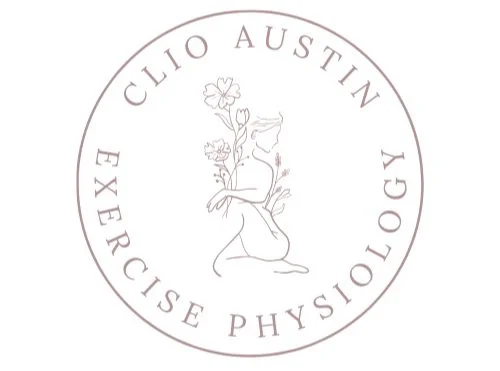Does Regular Exercise Lower Alzheimer’s Risk in Women? Here’s What the Science Says
Alzheimer’s disease is a daunting concern, especially for women in their menopausal years. Women make up almost two-thirds of all Alzheimer’s diagnoses, and research suggests menopause may play a key role. But there’s good news emerging from the latest studies: regular exercise appears to lower the risk of Alzheimer’s and support long-term brain health.
Alzheimer’s disease is a progressive neurological disorder that affects memory, thinking, and behaviour. It is the most common cause of dementia, a group of brain disorders that result in the decline of cognitive abilities severe enough to interfere with daily life. Alzheimer’s often begins with mild memory loss but can eventually lead to significant impairments in one’s ability to reason, communicate, and perform everyday tasks. For many, it can also result in increased dependency on caregivers, creating profound challenges for both individuals and their loved ones.
Women, who are disproportionately affected by Alzheimer’s, frequently face compounded health issues as they age. Many older women suffering from Alzheimer’s or related conditions end up in nursing homes where they require extensive support. Physical health concerns such as incontinence, mobility challenges, and chronic illnesses like heart disease and diabetes often accompany Alzheimer’s, further impacting their quality of life. The combination of cognitive and physical health issues makes managing day-to-day activities exceptionally difficult, placing a significant emotional and financial burden on patients and caregivers alike.
Why Are Women at Increased Risk?
Women experience unique hormonal changes during menopause, which can impact the brain’s structure and function. Dr Lisa Mosconi, a leading neuroscientist and women’s brain health advocate, has found that menopause-associated hormone fluctuations may make the female brain more vulnerable to cognitive decline. But, as Mosconi stresses, lifestyle factors can make a powerful difference.
A key factor in this increased vulnerability is the decline of estrogen, a primary female sex hormone, during and after menopause. Estrogen plays a crucial role in maintaining brain health, as it supports energy production in brain cells, reduces inflammation, and protects against neural damage. When estrogen levels drop, these protective effects diminish, leading to greater susceptibility to issues such as cognitive decline and memory impairment. Research also indicates that lower estrogen levels may affect the hippocampus, a brain region critical for learning and memory, making it more challenging to process and retain information. These hormonal changes underscore the importance of early intervention and proactive lifestyle choices to support brain health during the menopausal transition and beyond.
What Do the Studies Say About Exercise and Alzheimer’s Risk?
A wealth of research points to a connection between physical activity and reduced risk of developing Alzheimer’s. Here are some important findings on the subject:
1. Resistance Training and Brain Structure
A recent review by Louisa Nicola and colleagues (“Does resistance training in older adults lead to structural brain changes associated with a lower risk of Alzheimer’s dementia?”) explored the impact of resistance training. Their findings suggest that strength-based exercises can help maintain or even increase brain volume in regions most affected by Alzheimer’s, such as the hippocampus.
Nicola and her team conclude, “Regular resistance training not only benefits muscle health but is also likely to induce structural changes in the brain that underpin cognitive resilience against dementia.”
2. Aerobic Exercise and Cognitive Health
Aerobic exercise, such as brisk walking, cycling, or swimming, has also shown promise. A study by Laura D. Baker (“Aerobic Exercise Improves Cognition for Older Adults with Glucose Intolerance, A Risk Factor for Alzheimer's Disease”) found that older adults who engaged in regular aerobic activity showed improvements in memory and thinking skills. Since women in midlife are often at greater risk for glucose intolerance, these findings are especially relevant.
Baker notes, “Twelve months of aerobic exercise resulted in significant improvements in executive functioning and reduced levels of brain amyloid, a key marker of Alzheimer’s risk.”
3. Additional Findings
Regular physical activity is associated with improved blood flow to the brain, reduced inflammation, and healthier neural connections.
Exercise can help manage weight, blood sugar, cholesterol, and blood pressure, all of which influence Alzheimer’s risk.
Dr Lisa Mosconi’s Insights on Lifestyle and Prevention
Dr Lisa Mosconi, author of “The XX Brain,” emphasises the importance of holistic wellness for women, especially during and after menopause. She advocates for a “brain healthy” lifestyle that includes regular movement, balanced nutrition, stress reduction, and managing sleep.
According to Mosconi, “Women need a personalised, proactive approach to brain health. Physical activity stands out as one of the most potent and accessible lifestyle tools in our arsenal.”
Dr. Lisa Mosconi also highlights the profound impact of menopausal hormone therapy (MHT) in supporting brain health. She explains that the hormonal changes during menopause, particularly the decline in estrogen levels, can significantly affect cognitive function and overall brain vitality. MHT, when used appropriately and under medical guidance, can help mitigate these changes, providing much-needed support to maintain brain function and prevent issues like memory loss or cognitive decline. Mosconi emphasises that while MHT is not a universal solution, it can play a crucial role in a personalised plan for long-term brain wellness, especially for women at higher risk of neurological conditions.
Practical Steps for Getting Started
Beginning or ramping up your exercise routine doesn’t have to be daunting. Here are some practical, evidence-based tips:
Start Small: Even daily 10-minute walks count. Consistency trumps intensity at the beginning.
Mix It Up: Include both aerobic (like walking or swimming) and resistance (using bands or weights) exercises each week.
Buddy Up: Join a group class or walk with a friend for extra motivation.
Track Progress: Use a journal or app to celebrate milestones.
Consult an Expert: If you have health concerns or are just getting started, working with a qualified exercise physiologist can help tailor a plan to your needs and goals.
The science is encouraging for women seeking to take control of their brain health. While no single factor can guarantee prevention, adding regular physical activity to your routine can be a game-changer for long-term cognitive resilience.
Need guidance on finding the right exercise approach for your stage of life? Reach out to me for women’s health-focused exercise support tailored to your needs. Your brain will thank you for it!

